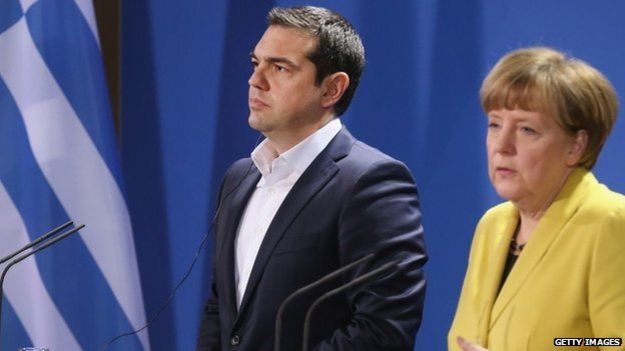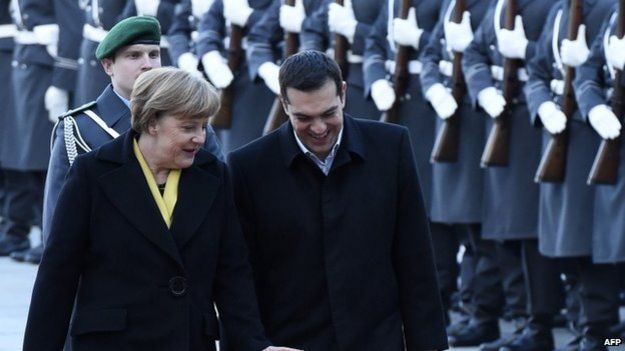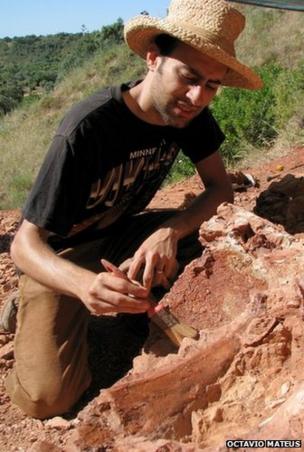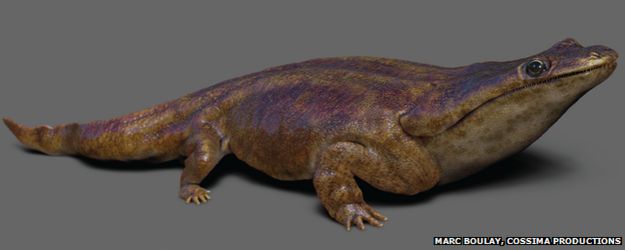France's centre-right UMP party and its allies have taken first place in the first round of local elections, according to official results from the Interior Ministry.
They took 32% of the vote, while the far-right National Front (FN) came second with 25%.
President Francois Hollande's governing Socialists came third with 22%.
The results mean the second round on 29 March will see a run-off between the UMP and the FN in many constituencies.
Voters are electing representatives in 101 departments, or counties, charged with issues like schools and welfare.
UMP leader Nicolas Sarkozy said the outcome of the first round demonstrated "the French people's profound desire for change".
"The conditions for a massive swing back to the right and the centre are in place," he added.
Mr Sarkozy also ruled out any "local or national" deals with the FN in constituencies where one of the two parties is involved in run-offs with the Socialists.
In the past, voters for rival parties have rallied against the far-right group in the second round of voting.
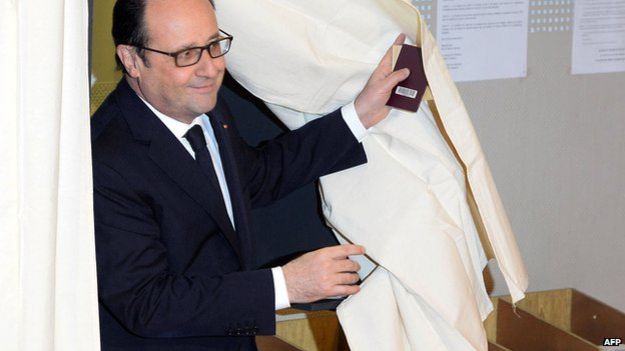
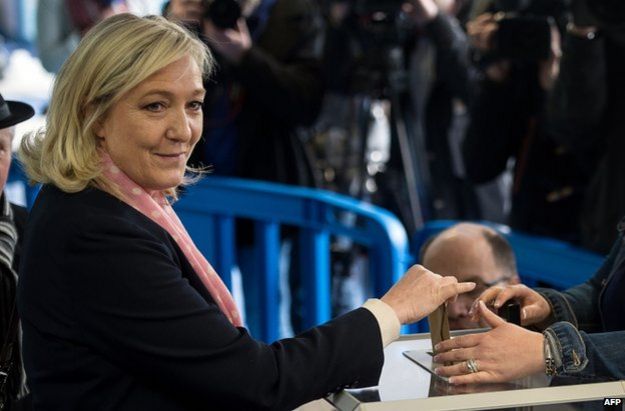

Analysis: Hugh Schofield, BBC News, Paris
It's another big vote for the French far right, following the municipal and European elections last year. In this first round of departmental or county council elections, nationwide 24.5% of voters chose the National Front, according to one poll.
It is a figure that shows yet again how Marine Le Pen's strategy of building a system of local organisation and shutting down the party's overtly racist elements is paying off.
However, opinion polls had suggested the far-right could have done better - even emerging as the most popular party in the election.
That didn't happen, which has given some cheer to the mainstream opposition here, led by former President Nicolas Sarkozy.

The poor results for the Socialists follows on from their defeats in municipal and EU elections last year.
However, Prime Minister Manuel Valls said the party had "resisted better than expected".
Some polls had indicated that Marine Le Pen's FN could come top in the first round.
She had been hoping the elections would build momentum ahead of her expected bid for the presidency in 2017.
However, Ms Le Pen, insisted the result was a "very big success" for her party, exceeding its performance in the European Parliament elections.
In the Var department, in the south-east corner of France, the FN got more than 30% in all constituencies, according to LCI TV.
And in Nord department, near the Belgian border in the north-east, the FN will fight the second round in 37 constituencies out of 41.
For the first time in these elections, voters are not choosing single candidates - but pairs of candidates - one man and one woman - in order to enforce strict gender equality in local politics.


